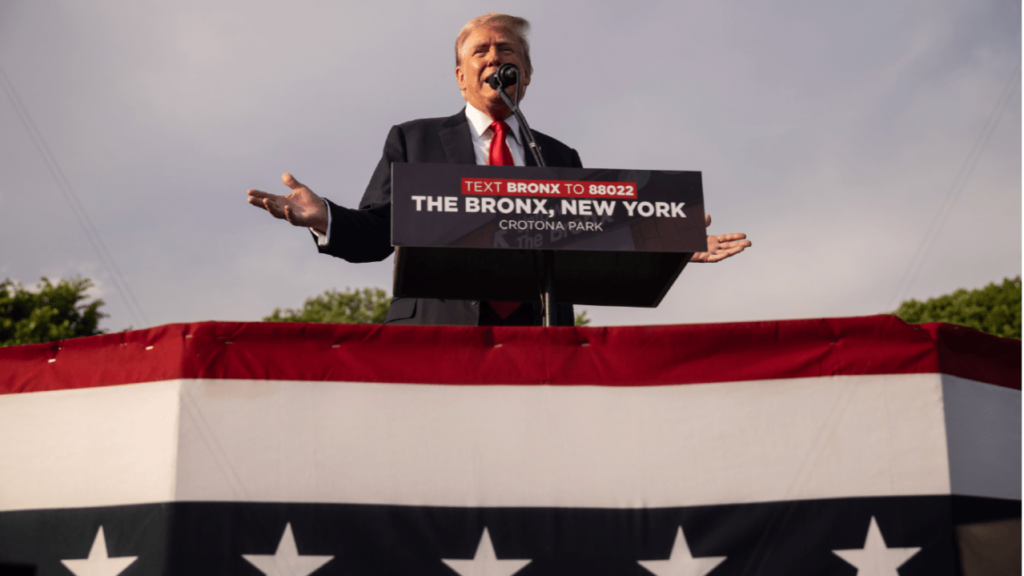It was a vicious campaign, with the Republican candidate challenging a sitting Democratic president launching vicious accusations that the president was conspiring with others to change the outcome of the election.
No, this was the 1940 campaign, not 2024.
That year's Republican presidential candidate, Wendell Willkie, accused Franklin D. Roosevelt of plotting to instigate the outbreak of World War II. Willkie falsely accused Roosevelt of calling Adolf Hitler and Benito Mussolini and urging them to “betray Czechoslovakia.” Willkie argued that Roosevelt “invited the nation into a war for which it was entirely unprepared” only to remain in power and for which he “resolutely did not want it.”
These accusations infuriated President Roosevelt, who described himself as “fighting like a madman.” In a speech in Philadelphia, he denounced the vile charges, telling a crowd of partisan Democrats that “true electoral debate on public questions is essential to the American form of government.”
But he added that “there is no willful misrepresentation of fact, during election time or at any other time.” Among the “willful misrepresentations” Roosevelt listed were that “the unfortunate unemployed people of the country will be sent to concentration camps” and “the election of the present Administration will mean within four years the end of American Democracy.”
Roosevelt described the tactics used by dictators abroad and dissidents at home to gain support: “It is a very simple technique, consisting in repeating a lie over and over again, with the idea that by repeating it without contradiction, the false statement will eventually be believed.” The result, he argued, is to sow “fear” and “doubt” about government and democracy itself.
Still, he reassured his audience that democracy would prevail thanks to a free and fair press: “I find it hard to believe that deliberate, repeated false statements can prevail in a democracy such as ours.”
Today, Donald Trump repeatedly spews deliberate falsehoods with no universally trusted media sources to refute them. Weekly newspaper circulation has fallen by more than half since 1940. And viewership for the three network evening news shows is a fraction of what it once was. Walter Cronkite no longer ends his newscasts with the words, “That's just how it is.”
Instead, we have a plethora of news media aimed at comforting rather than informing: Conservatives flock to cable channels like Fox News and Newsmax, while liberals tune in to MSNBC, and a recent Pew Research Center poll found that a majority of Americans want reporters to talk about their politics above any other personal characteristic.
Reassuring viewers means that partisan news networks enjoy high ratings. Fox News is the ratings king, but Donald Trump's resurgence and courtroom theatrics have pushed MSNBC (which Trump mockingly calls “MSDNC”) into second place in the ratings, while CNN, a more traditional news outlet, has seen its ratings fall to an all-time low.
This development is creating tensions in more traditional newsrooms. The New York Times recently reported how MSNBC's number one host, Rachel Maddow, rebuked her boss on air after broadcasting snippets of Donald Trump's victory speech on Super Tuesday. Veteran reporters at NBC, according to the Times, are “alternating between exasperation and resignation” to the partisanship displayed by the sister network. Local NBC stations are calling on network executives to do more to protect the nonpartisan brand.
The result is a minefield of journalism and partisanship. The editor of the Cleveland Plain Dealer noted that he regularly accuses his pro-Trump readers of “ignoring the Biden family criminal enterprise” and other suspected criminal activity. His answer was blunt: “The North Star here is the truth. We're going to tell the truth, even if it makes some of the people who pay for it uncomfortable.”
But trusted, fact-based reporting is quickly becoming irrelevant, as viewers often tune in to news channels or log onto their favorite internet sites not to be informed but to confirm what they already believe.
As a result, Franklin Roosevelt's assurance that democracy can be sustained by a free and fair press is no longer valid. A gifted showman like Donald Trump can denounce “fake news” and find news executives who care most about ratings.
During the 2016 election, Les Moonves, then chairman and CEO of CBS, said of Trump's rise, “It may not be good for America, but it's been very good for CBS.”
“In an age of misinformation, it's more important than ever that people have reliable information they can trust,” Joe Biden told reporters at the White House Correspondents' Dinner, adding, “And that's why you all matter more than ever.”
Returning to his Philadelphia speech, Franklin Roosevelt reminded us that the presidency is “not a commodity to be sold by high-pressure salesmanship” but rather “a most sacred trust.”
Maintaining that trust isn't just a responsibility that falls on those seeking the presidency — it's the media's responsibility to ensure that voters have accurate information when they enter the polls and fulfill their most sacred civic duty.
Today, that bond of trust has been broken, and our democracy is at risk.
John Kenneth White is a professor of political science at Catholic University. His latest book is “Grand Old Unraveling: The Republican Party, Donald Trump, and the Rise of Authoritarianism.” He can be reached at: John Kenneth White.
Copyright 2024 Nexstar Media Inc. All rights reserved. This material may not be published, broadcast, rewritten or redistributed.

